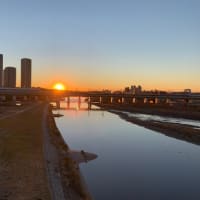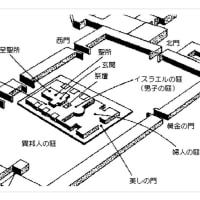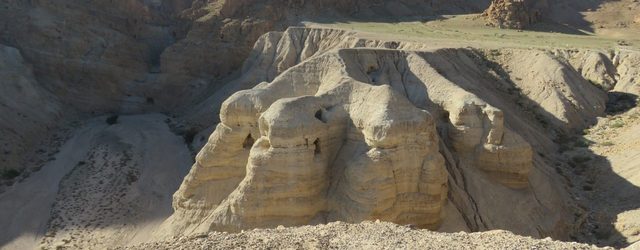マルコの福音書11章 イエスの権威
1.エルサレム入場(11:1-11)
11章からは、エルサレムが舞台となっています。イエスの受難物語に入っていきます。イエスは、エルサレムに入られると、二人の弟子たちを先に遣わしました。イエスがエルサレムに入場する際に使われる子ろばを調達するためでした。なんとも随分手際のよい話で、弟子たちがエルサレムに向かうと、そのような備えが、ちゃんとしてあったと言います。そこで、イエスはその子ろばに乗り、エルサレムへ入場、イエスをメシヤと認める群衆の喝采を浴びるのです。彼らは、イエスを「来るべき方」、ダビデの子と呼びました。しかしそれは、一時的な興奮に過ぎませんでした。後に、彼らは一転してイエスをのろい、十字架につけることになるからです。
ともあれイエスは、11節、その日、宮を見て回って一度ベタニヤに戻られました。ベタニヤは、オリーブ山の東側に位置する小さな村で、そこに宿泊されたのです。今日エルサレムの神殿の丘を訪れると、その周囲には、ミクベつまり沐浴場付きの宿泊所の跡がたくさん発掘されています。エルサレムに巡礼する金持ちは、神殿に近接した、そのような宿泊所に泊まりました。しかし、貧しい人々は神殿の丘の外、つまりイエスのようにオリーブ山等にある宿泊所に泊まったのです。万軍の主であり、万物の王であられるイエスは、貧しい人々と行動を共にされた、ということです。
2.二つの行動によるメッセージ(11:12-26)
さてイエスがエルサレムに入場した翌日、二つの事件が起こりました。一つは、イエスがいちじくの木を呪いいちじくが枯れてしまう事件です。この事件は何を意味したのでしょうか?旧約聖書において、いちじくの木は、しばしばイスラエルの象徴として用いられるものです。つまり、いちじくに対する呪いはイスラエルに対する呪いを意味しました。メシヤが来ているのに備えのできていないイスラエルに、神の裁きがあることを語っているのです。
しかし弟子たちは、その象徴的なメッセージよりも、イエスの一言でいちじくが枯れてしまったことに反応しています。私たちも、ここで同じような反応をしてしまいがちです。つまり、24節、「あなた方が祈り求めるものは何でも、既に得たと信じなさい。そうすれば、そのとおりになります」ということばだけに注目し、このことばだけを自分のご利益的な意図に当てはめようとします。しかし文脈は、そのようなことを語ってはいませんし、文脈を無視した適用をしてはならない部分です。ですから25節、イエスは弟子たちの的外れな反応に脱線して付き合いながらも、神の赦しを求めるべきことに話を戻しています。
続いて起こった宮清めと呼ばれる事件も、神の裁きのメッセージを伝えています。つまり、これも形式化世俗化し、さらには商売の道具と化した神殿の状況に、神がさばきをくだされることを象徴的に語る事件なのです。
3.イエスの権威(11:27-33)
群衆はイエスをメシヤと迎え、イエスはそれに答えるかのように、イスラエルの霊的状況に裁きを語られました。まるで神殿をひっくり返すような騒ぎを起こしたイエスに、人々は注目し、イエスの権威が問われていきます。何の権威を持って、イエスはこのようなことをするのか。イエスを天から遣わされた神の子と素直に認めるのか、それとも悪魔、あるいは狂人とするのか。宗教家たちは、結論を迫られたのです。悪魔や狂人とするのなら、イエスをメシヤと認める群衆が黙っておらず暴動が起こりかねない状況でした。かといって彼らは神の子とも認めたくはないのです。彼らは苦し紛れに「分かりません」と答えました。それはかしこい回答であったかもしれませんが、イエスがいちじくの木の奇跡と宮きよめの事件で警告した神の裁きを受ける結論でした。マルコは、このエピソードを通して、福音書の読者にも同じ問いを投げかけています。イエスは神の子か、果たして悪魔、狂人なのか。あなたはどのように思われますか、と言うのです。では今日もよき一日となるように祈ります。
Mark 11: The Authority of Jesus
1. entrance into Jerusalem (11:1-11)
Beginning in chapter 11, the scene is set in Jerusalem. We enter the story of Jesus' Passion. When Jesus entered Jerusalem, He sent two disciples ahead of Him. The purpose was to procure a colt for Jesus to use when he entered Jerusalem. It is said that when the disciples went to Jerusalem, such a provision was made for them. There, Jesus rides into Jerusalem on his colt to the cheers of the crowds who recognize him as the Messiah. They called Jesus "the One who was to come," the Son of David. But this was only a temporary excitement. Later, they would turn around and crucify Jesus.
Anyway, Jesus returned to Bethany once that day after going around the temple in verse 11. Bethany was a small village on the east side of the Mount of Olives, and that is where He stayed. If you visit the Temple hill in Jerusalem today, you will find many excavated ruins of mikvehs, or lodging houses with bathhouses, around it. Rich pilgrims to Jerusalem stayed in such accommodations in close proximity to the Temple. The poor, however, stayed outside the Temple hill, on the Mount of Olives, as Jesus did. Jesus, the Lord of hosts and King of all, shared the same actions with the poor.
2. message through two actions (11:12-26)
On the day after Jesus' entry into Jerusalem, two incidents occurred. One is that Jesus cursed the fig tree and the figs withered. What was the significance of this incident? In the Old Testament, the fig tree is often used as a symbol of Israel. In other words, the curse on the fig tree meant a curse on Israel. It speaks of God's judgment on Israel for being unprepared for the coming of the Messiah.
But the disciples responded more to Jesus' one word about the figs withering than to the symbolic message. We tend to have a similar reaction here. In other words, verse 24, "Whatever you pray for, believe that you have already obtained it. Then it will be so," and we try to apply these words alone to our own profit-making intentions. But the context does not speak of such a thing, and this is the part that should not be applied out of context. So in verse 25, Jesus, while derailing and going along with the disciples' off-the-mark response, returns to the subject of the need to seek God's forgiveness.
The incident that followed, called the cleansing of the temple, also conveys the message of God's judgment. In other words, this incident also symbolically tells of God's judgment on the condition of the temple, which had become formalized and secularized, and even turned into a tool of business.
3. the authority of Jesus (11:27-33)
The crowds welcomed Jesus as the Messiah, and as if in response, Jesus spoke judgment on the spiritual condition of Israel. The people look to Jesus, who has caused a commotion that seems to overturn the temple, and Jesus' authority is questioned. By what authority does Jesus do this? Do we honestly recognize Jesus as the Son of God sent from heaven, or the devil, or a madman? Religious leaders were forced to come to a conclusion. If they were to accept Jesus as the devil or a madman, the crowds who recognized him as the Messiah would not remain silent, and a riot would ensue. But they did not want to recognize Jesus as the Son of God either. They replied, "We don't know. That may have been a wise answer, but it was a conclusion that would result in the judgment of God that Jesus warned about in the miracle of the fig tree and the cleansing of the temple. Mark poses the same question to his Gospel readers through this episode. Is Jesus the Son of God, or is he really the devil, a madman? What do you think? I wish you a good day today.


















